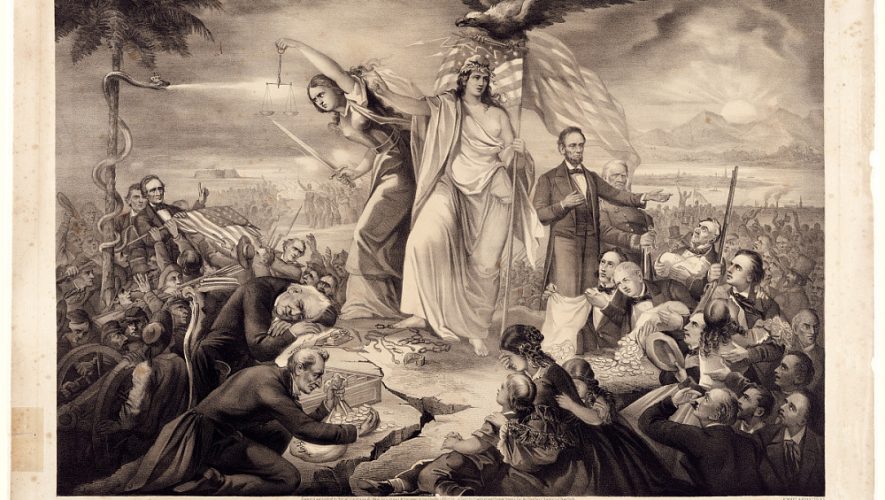Prior to becoming the world’s most prosperous nation, second largest trade exporter, and greatest influencer, the United States was an array of minor territories clinging to the solitary North American coast.
One tactic propelled this vulnerable, shattered mosaic of a nation to one of today’s world leaders: war. War is American history’s blood and bones, and its brutality still echoes across the globe. Centuries of conquests, all for the sake of wealth.
War Built America
Conflicts like the Mexican–American War and the Korean War aided in the state’s aims of increasing territorial gain, nationalistic pride, and involvement in international affairs. These conflicts ushered in the development of novel foreign relations and allowed countries like South Korea to become a democratic ally of the United States. However, these gains costed the price of the widespread massacring, torturing, and raping of innocent civilians.
In the Mexican-American war, American soldiers killed over 4,000 civilians. In the Korean War, the American military slaughtered 10 percent of Korea’s total civilian population and committed over 1,800 acts of torture, including forced starvation, beatings, rape, and forced marches.
We Did it For Money
The US government tries to hide from its bloody past, but its motivation for causing so much death and destruction is as simple as it is shameful: money.
Through the Mexican-American War, the United States adopted over 100,000 Mexicans as US citizens and used these migrants to build its western frontier. At the same time, US investors poured money into Mexican railroads, mines, and export industries like petroleum, which produced massive profits.
The Korean War opened up Asia to American investment and many economists argue that it increased the US’s involvement in global affairs generally. The Korean War also spurred a sharp increase in consumer expenditure, contributing to rapid gross domestic product (GDP) growth.
US foreign policy has consistently exploited the relationship between war and economic growth; war requires the US to spend money on its military, and government spending is a large component of GDP. War also spurs industrial production and employment, further contributing to GDP growth.
Although America’s more modern efforts to prevent war in the Middle East and aid nations such as Ukraine and Syria appear good-natured, their true intentions don’t solely encompass humanitarian concerns. America allegedly began its wars in Iraq and Afghanistan to counter terrorism in the region. In reality, they were a strategy to feed American corporations, which reaped millions by exploiting mineral deposits and oil reserves.
US foreign aid to Syria provides the US with another source of oil. Meanwhile, US intervention in Libya stabilized its economy, which provided a new market for exports from the United States.
As a Ukrainian, I am overjoyed by the fact that the US is aiding my family’s home country; however, this is not done out of the virtue of an American’s heart. The US economy benefits enormously from its involvement in conflicts throughout Eastern Europe—including Ukraine—by attracting global capital flows, and disrupting bilateral trade between Russia and the E.U.
War is a Business, not a Game
Despite the unfathomable wealth that America owes to war, some argue that America pursues warfare to sustain humanitarian rights or to promote national security.
But, if the United States truly cared about maintaining humanitarian conditions, then we would commit to these conflicts by offering further support. The US has refused to fully involve itself in other nations’ disputes. In Yemen, for instance, although the Biden administration declared it would no longer support Saudi Arabia’s military intervention, the US still maintains a position in the war by defending the Saudis against threats. Considering that Saudi Arabia holds the world’s second-largest oil reserves, America’s position on the war is not particularly surprising.
In addition, the US has shown no interest in offering support to numerous other humanitarian crises, such as the Uighur genocide in China, the ongoing conflict in Ethiopia, and the persistent political unrest transpiring in Somalia between the nations central government and al-Shabaab.
With regard to national security, the United States engages in conflict with regions that do not threaten American citizens at all. In the Black Hills War of 1876 , the US government attacked Native American tribes living on the Western frontier. US soldiers killed 265 Native Americans in the conflict. Likewise, US involvement in the Iraq War was because of our desire for oil, not because Iraq posed a direct threat to US power.
War should be for people, not for power
The United States seems like it will persist in declaring war as a lucrative business until the end of time. However, despite this apparent perpetual ardor, we must acknowledge that obtaining capital primarily through war is far too bloody.
We should call on our government to only engage in conflict when it is necessary, and to respect all peoples’ human rights, rather than to rely on war as a means of enrichment.



